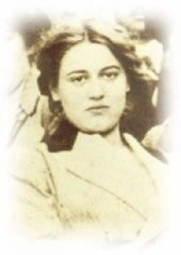The papers of Apostolic Visitor, Giuseppe Ramiro Marcone reveal the Holy See’s commitment to helping Jews persecuted by Nazis

Detailed instructions from the Secretary of State of the Holy See clearly state that Abbot Marcone’s mission had “a completely spiritual and religious aim…from which it follows that the Most Reverend Abbot Marcone visiting the Kingdom of Croatia…will endeavor to avoid official contact with the governing authorities, in such a way that his mission be, and appear to be, in accordance with the desires of the Holy See, of a strictly religious nature...Particularly, the Most Reverend Prelate will advise and support Monsignor Stepinac and the Episcopate in combating the evil influence of neo-pagan propaganda which could be exercised in the organization of the new state.”
Only three weeks after his arrival, the diligent Apostolic Visitor sent a detailed report to the Holy See in which he described, in an abundance of detail, the precarious condition of the Jews in Croatia. The Roman Curia did not delay in replying, and on September 3rd, a letter from the Secretariat of State reached him containing precise directives which the Pope’s representative was advised to follow scrupulously: “Moderation is recommended regarding the treatment of Jews who reside in Croatian territory.” I
In reality, as Marcone’s secretary, Don Giuseppe Masucci, writes in his diary of the events, beginning on February 10, 1942, Abbot Marcone was asked to approach, with a certain swiftness, the Ustasa authorities to plead the cause of the Jews who were about to be taken to concentration camps; the prelude to the wicked “final solution to the Jewish problem.” S.S. Captain, Franz Abromeit, had been sent to Croatia to oversee the transfer of 5,500 Jews who – between August 13-20, 1942 – were removed from Croatian concentration camps and put on five trains destined for Auschwitz.
Seriously worried for the precipitation of events, Chief Rabbi of Zagreb, Miroslav Shalom Freiberger, in the late afternoon of February 10, 1942, decided to immediately call on the Pope’s representative. In Don Giuseppe Masucci’s diary the entry reads, “Chief Rabbi Dr. Freiberger presented himself to me at 6 pm, out of breath, and communicated to me that the city is full of notices announcing that all Jews, without distinction, must present themselves to the police. I told him that I would ask to speak with the Chief of Police the following day, and ask for an explanation. He added that the situation was very urgent because they would have already arrested everyone that night. So I telegraphed Dido (Eugen Kvaternik) saying that I had an extremely urgent matter to discuss with him and that there was no time to waste; he told me that I could come at 7 pm. At 7 pm I went to him and at length spoke, implored him and begged on behalf of these unfortunate Jews. I told him that mixed marriages should not be considered Jewish, but as part of the Catholic Church.”
The Police Chief , “was fairly pensive and immediately gave the order to publish in the newspapers that the notices were annulled. That all Jews in a mixed marriage should not be further disturbed, and that those who were still alive in concentration camps should be immediately released.” Abbot Marcone then took it upon himself to organize the transport of a small group of Jewish children – among whom was the son of the Chief Rabbi of Zagreb – through Hungary and Romania to safety in neutral Turkey.
As a sign of his gratitude, Rabbi Freiberger sent a letter to the Pontiff, on August 4, 1942, in which he expressed his deepest thanks for the sacrifice of many Catholic religious in assisting the Jews, and hoped that the Vatican would continue in this direction: “Full of respect, I dare come before the throne of Your Holiness to express, as Grand Rabbi of Zagreb and spiritual head of the Jews in Croatia, my most profound gratitude, and that of my congregation for the goodness, without limits, that the representatives of the Holy See and the heads of the church have shown to our poor brothers.”
By Giovanni Preziosi


<< Home